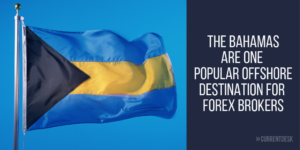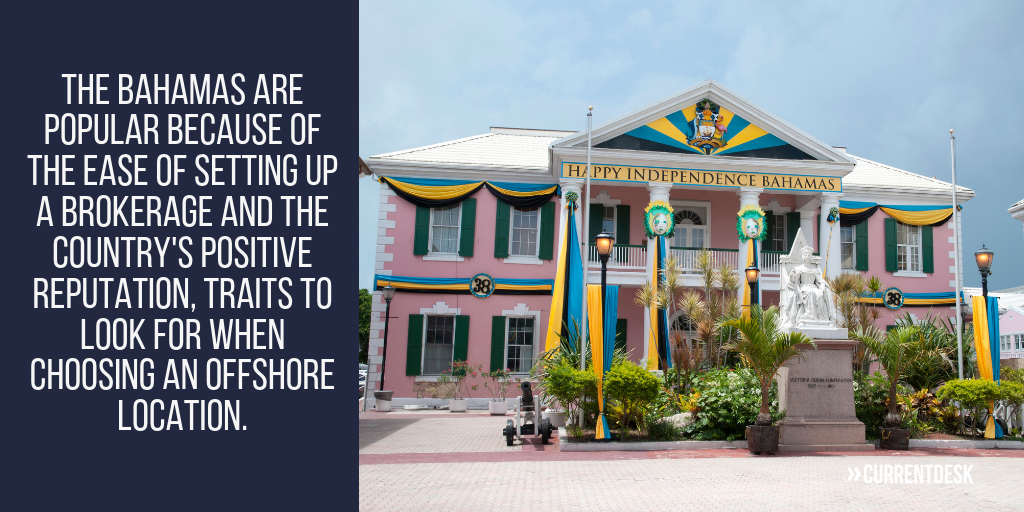Operating in Less Regulated Forex Markets
Tips for FX brokers opening in unregulated markets
Financial regulatory authorities around the globe have increased their oversights of forex brokers and put more rules into place in the past few years. In response, many brokers have chosen to open branches in countries where regulations are less strenuous.
If you’re considering opening a new brokerage or setting up a subsidiary firm in a new location, you may want to look at less-regulated markets.
Less-regulated markets
There are countries where no financial regulations exist and countries where there are simply fewer regulations. Countries without strict regulations are often referred to as being offshore.
Some firms have recently opened offices offshore specifically because of strict regulations in traditional financial centers. FxPro now has an office in the Bahamas and specifically cited regulations in Europe as one reason for getting a license in the Caribbean country.
 Other firms have been based in less regulated places for years. Gain Capital has been licensed by the regulatory authority in the Cayman Islands for over 10 years.
Other firms have been based in less regulated places for years. Gain Capital has been licensed by the regulatory authority in the Cayman Islands for over 10 years.
Many reliable and reputable forex brokers choose to obtain their licenses from less-regulated countries. Accuindex is registered in Vanuatu but also has offices in Dubai and London. Similarly, EGM Securities is regulated in Kenya but is associated with firms (with their own regulatory licenses) around the world.
Benefits of unregulated forex markets
Brokers choose to operate in less regulated markets for many reasons. They often find it easier to set up a brokerage in a less-regulated market. Most of those markets have a much lower capital requirement than countries with more robust regulations. For example, Vanuatu has a capital requirement of just $50,000, much lower than the amount required by ESMA (730,000€). Meanwhile, Bermuda doesn’t have any minimum capital amount for firms.
Many countries that attract brokers also offer plenty of high skilled workers who can be employed for much less than similar workers in major financial centers like London. Both Belarus and South Africa offer access to tech workers that can support brokerages’ needs.
Setting up and operating is easier in some off-shore markets, but even firms that could afford the capital requirements and salary expenses in London see benefits to operating in less regulated countries. Without regulations in place, they’re free to offer products that clients want.
 One thing many clients want is a high ratio of leverage to invested capital. However, regulators following ESMA guidelines have limited leverage options in order to reduce clients’ risk.
One thing many clients want is a high ratio of leverage to invested capital. However, regulators following ESMA guidelines have limited leverage options in order to reduce clients’ risk.
Regulators have also limited the amount and kind of bonuses that brokers can offer. Bonuses are an excellent way to attract new clients and set your firm apart from you competitors. By opening a firm in a country that does not have strict leverage limits, your brokerage can offer clients the leverage options that they want and entice them to join your firm with appealing bonuses.
Tips for remaining trustworthy
Firms in offshore locations are not more or less trustworthy than those regulated by the FCA or the authorities in other financial trading centers.
However, new investors who have only done a little research might not recognize this fact. Investment websites often warn readers that their money might not be safe if they invest with a firm in a less-regulated market.
To help combat the fear of offshore locations, it’s important to take extra steps to demonstrate your firm’s trustworthiness to potential clients.
- Physical offices – Ideally, your firm will have a physical office in the country where you’re regulated. Even though most clients will never visit your office, having one shows that your firm is a real business and that you’re not simply regulated in a specific area because of the ease of regulations there.
- ESMA option – Work with a partner firm or open a subsidiary firm that complies with regulations from a strict region, like the EU. Clients who wish to work with a broker under strict regulations can have an account with that firm and then move to your less regulated division after they become comfortable with you.
- Excellent service – Offer excellent customer service to your clients to build a relationship with them and help them get to know you. Providing good service will also reduce the likelihood that clients will leave negative reviews online that might make potential clients shy away from your firm.
Not all of these recommendations will be possible for small firms. However, they may be worth the investment as your firm grows since they can increase the level of trust that investors have with you.
Whether you’re setting up a new brokerage or expanding an existing one, getting regulated in an offshore market has several benefits. Consider the kind of clients you’re interested in attracting and how much capital and time you can invest in the set-up process. Then, decide which regulatory areas are best for your goals.
If you’re looking for help complying with ESMA requirements or other regulatory demands, check out our post on how software can help with MiFID II.


Comments are closed.